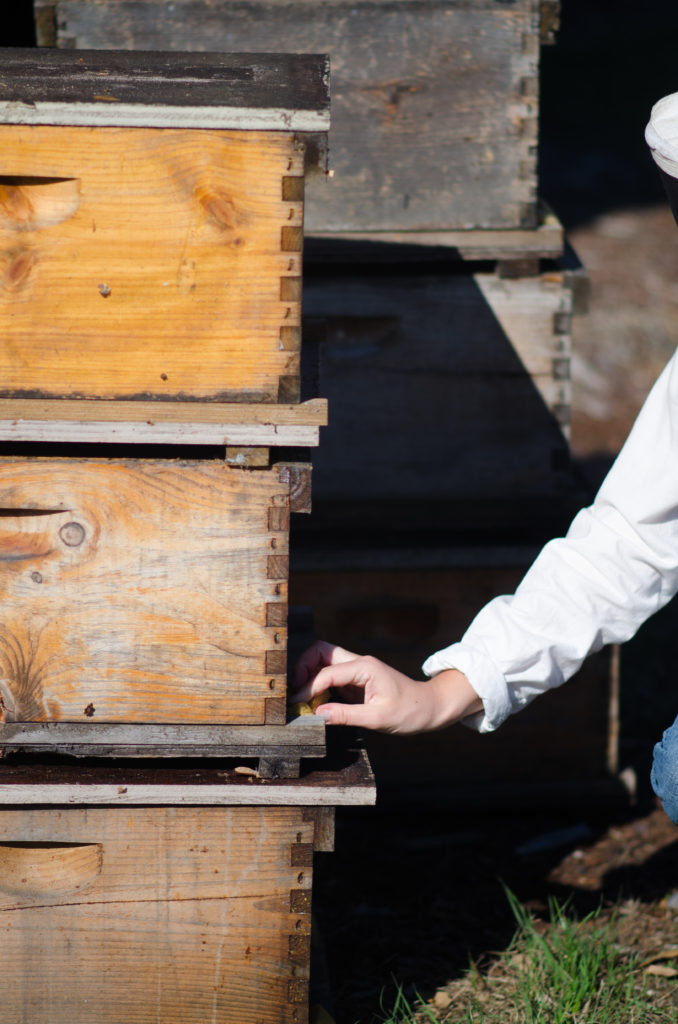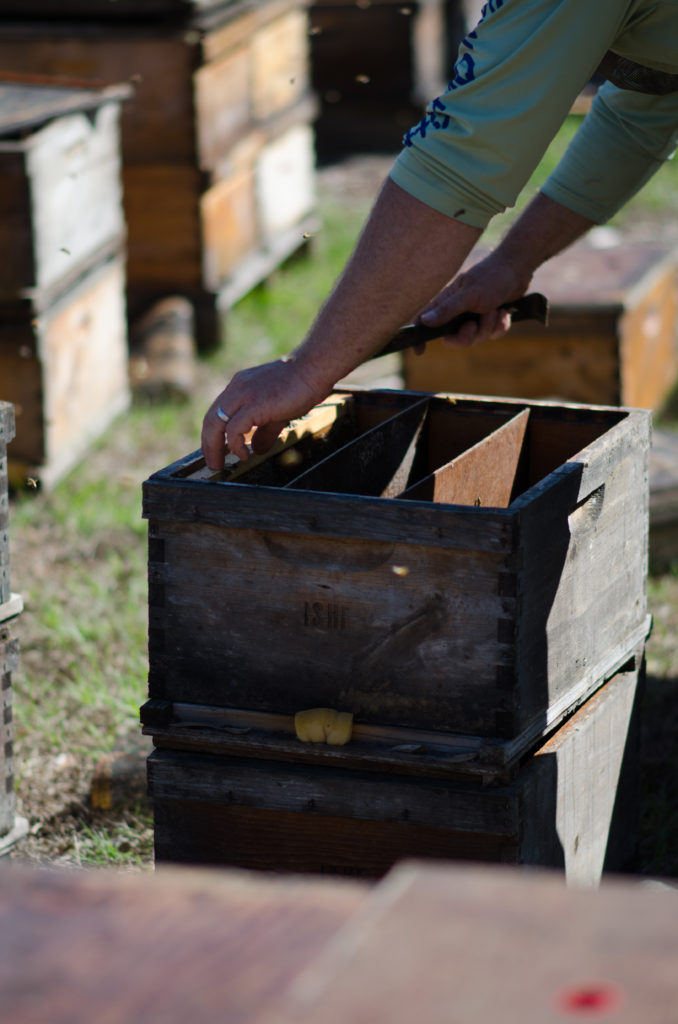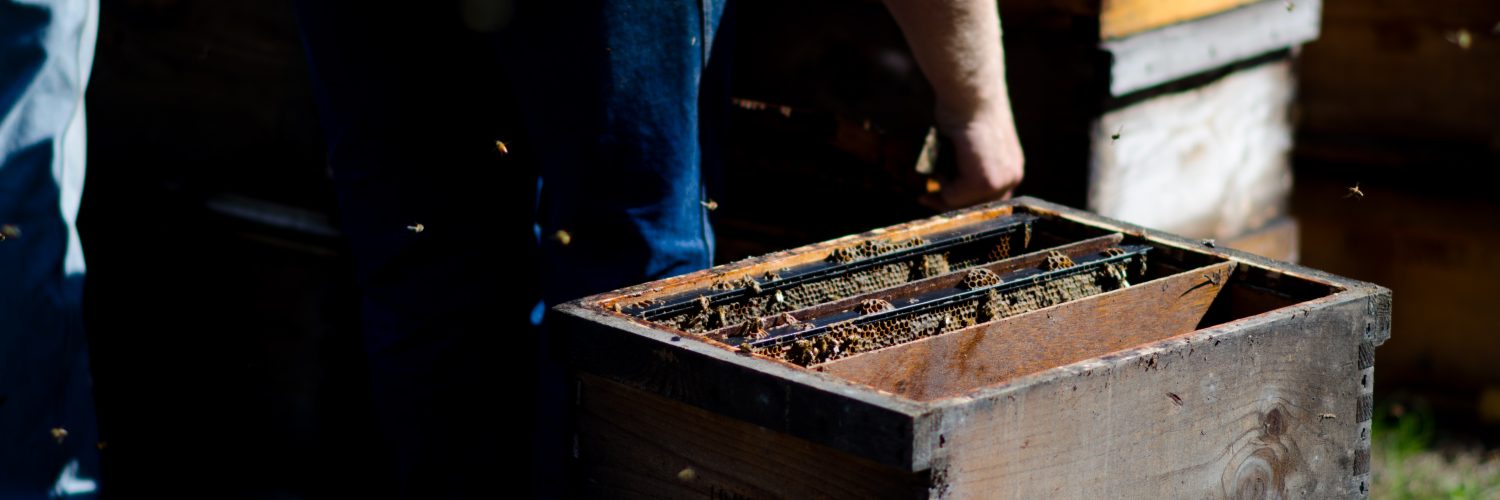
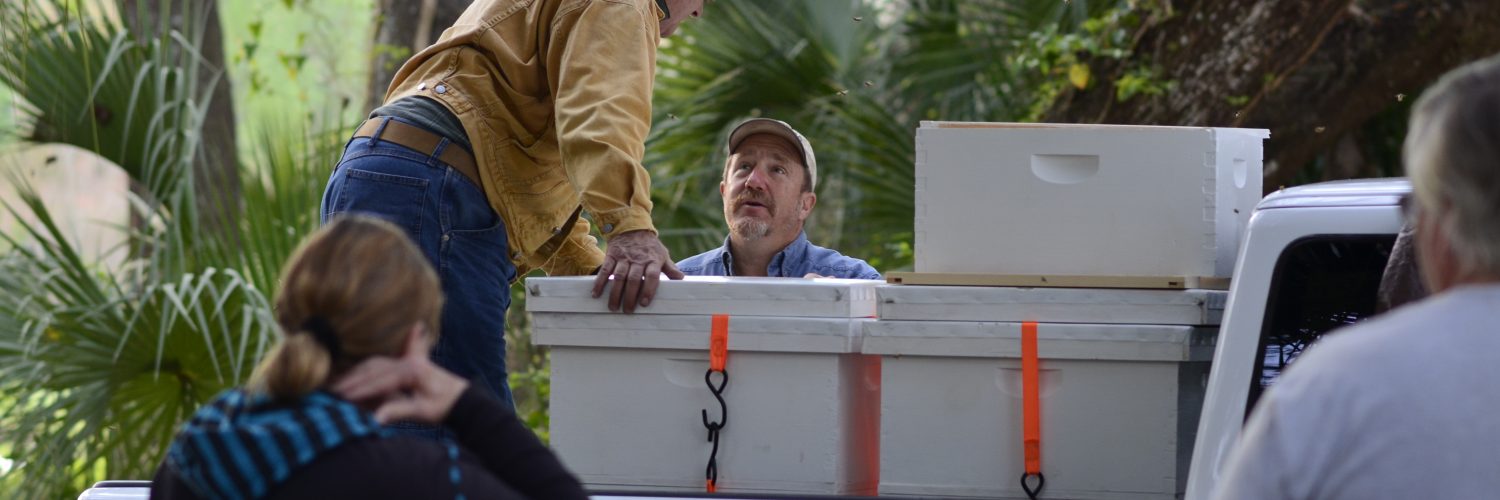
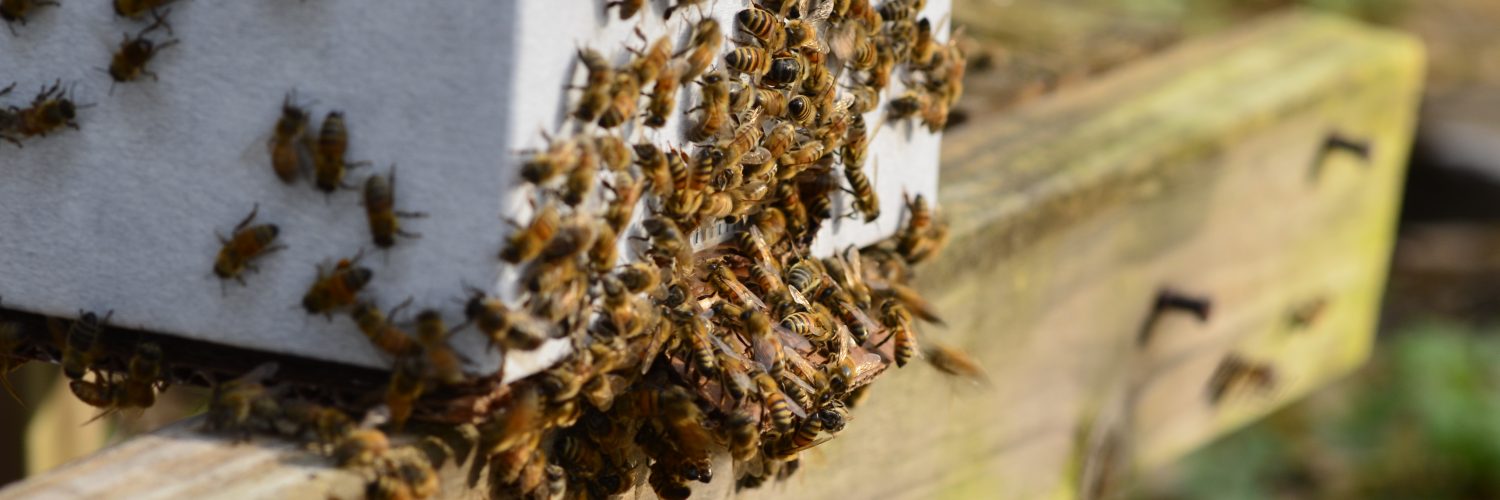
Nucleus Hives
Florida Nucs
5-frame nuc (2024) $150.00
Please email us at becky@indiansummerhoneyfarm.com or call us at (352)-429-0054 to schedule your nuc or for any questions concerning nucs.
Sold out for 2024
Wisconsin Nucs
5-frame nuc (2024) $155.00
Every spring (normally the last weekend of April or the first weekend of May) we ship one truck of nucs to Wisconsin. We have a limited amount of orders we can fill and our list normally fills by January. If you are from Wisconsin and are looking to get your name on our Wisconsin truck nuc list, or you have a question about our nucs, please email us at becky@indiansummerhoneyfarm.com or call us at (352)-429-0054
Truck Full for 2024
FREQUENTLY ASKED QUESTIONS
What equipment will I need to keep my bees? A lid, a bottom board, additional frames and foundation, a brood box, at least one honey super, a hive tool, a smoker, protective gear such as a veil, a jacket, a suit, and a pair of gloves.
When should I install my nuc? If the weather is bad, the bees CAN stay in the cardboard box for a few days, however, we recommend installing the nuc into a hive as soon as possible. Our nucs are strong and grow quickly and will need the extra room.
What size of equipment do you use? We use standard deep brood chambers.
Do you ship nucs? No, neither USPS or UPS will ship beehives.
How do I install my nuc? Please see the video posted at the bottom of this page. If you have any questions after the video, please call us and we will be happy to help!
Do I need to feed my hive? We try to make up our nucs with at least a frame of feed, however, we strongly recommend offering a new hive 1:1 sugar syrup.
What if I don’t live in Florida or Wisconsin? In May each year, we bring a load of nucs to Wisconsin. IF you are on our route and are interested in several nucleus hives, we MAY be able to meet you at a rest area or convenient location along the interstate for drop off. These drop-off’s are limited. Please contact us if this is something you are interested in.
Florida Nuc Pick-Up
How do I pick up my nuc? We schedule our Florida nuc pick-ups on Saturdays from 7:00-10:00. You must come on the day you are on our schedule. We ask that you keep your nucs cool and well ventilated as you transport them (either inside with the A/C on or with the windows down). A pick-up truck is ideal vehicle for picking up multiple nucs (please bring straps to keep lids from blowing off). We will have the entrances closed before you get here, but you may need to brush off a few bees on the outside of the box before you put them in your vehicle. If you are worried about loose bees flying around while you drive, we recommend bringing a fine netting or thin sheet to place over your nucs.
How do I pay for my nuc? Please bring cash or check when you come to pick up your nuc.
Wisconsin Nuc Pick-Up
How do I pick up my nuc? We ask our Wisconsin nuc customers to be at our Germantown location before our truck arrives (the truck usually arrives around 8:30 in the morning, but we will send an e-mail when we know for sure). Please transport bees in a ventilated area.
How do I pay for my nucs? Your nucs must be paid in full two weeks before the truck leaves for Wisconsin. Please mail payment along with the invoice sent to your e-mail.
ABOUT NUCS
Nucs? You sell Nukes? No, not nukes, rather nucleus hives.
We often chuckle when people overhear us talking about selling nucs! The nucs we are talking about are the nucleus hives that are popularly sold in the beekeeping community as a method of starting a beehive.
The nucleus hives that we sell are made up of 5 deep (standard brood) frames and are placed into an MDA splitter box. These cardboard boxes are imbedded with wax and can be used to make up and temporarily store a nuc until it can be installed into an 8 or 10 frame brood box.
The nucleus hives we sell are derived from our queen-mating nucleus hives, which we use to raise our queens during the winter months while in Florida. Our nucleus hives are made up of at least three frames of brood of various ages from eggs to hatching brood along with a well-mated, mature marked queen who is the ‘mother’ of the brood in that box. The additional two frames are usually made up of one or more of the following: extra brood, honey, or pollen.
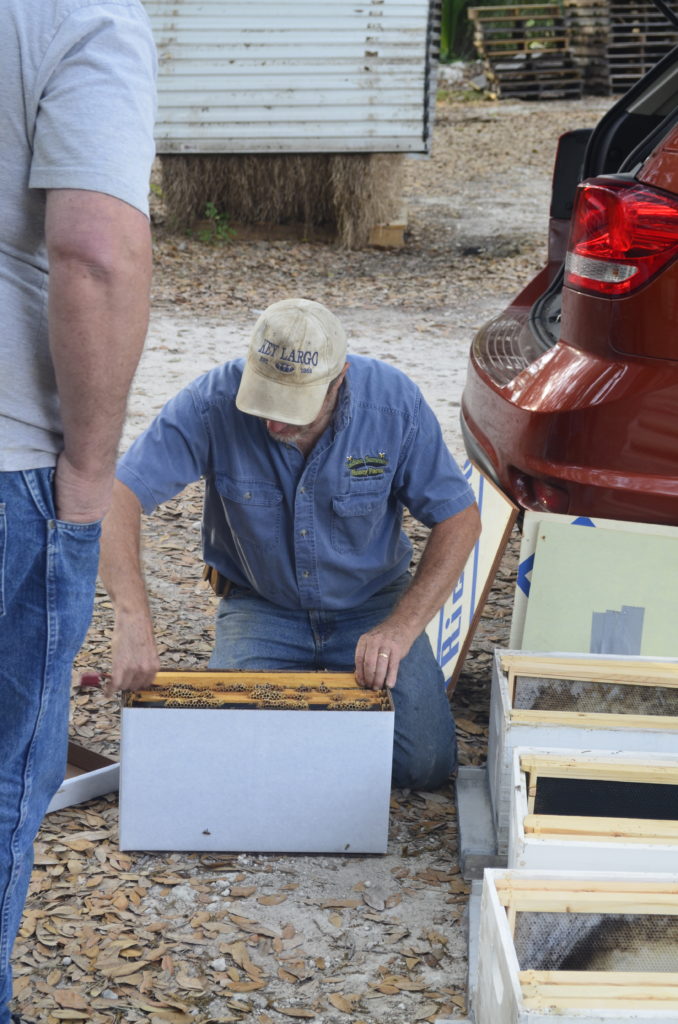
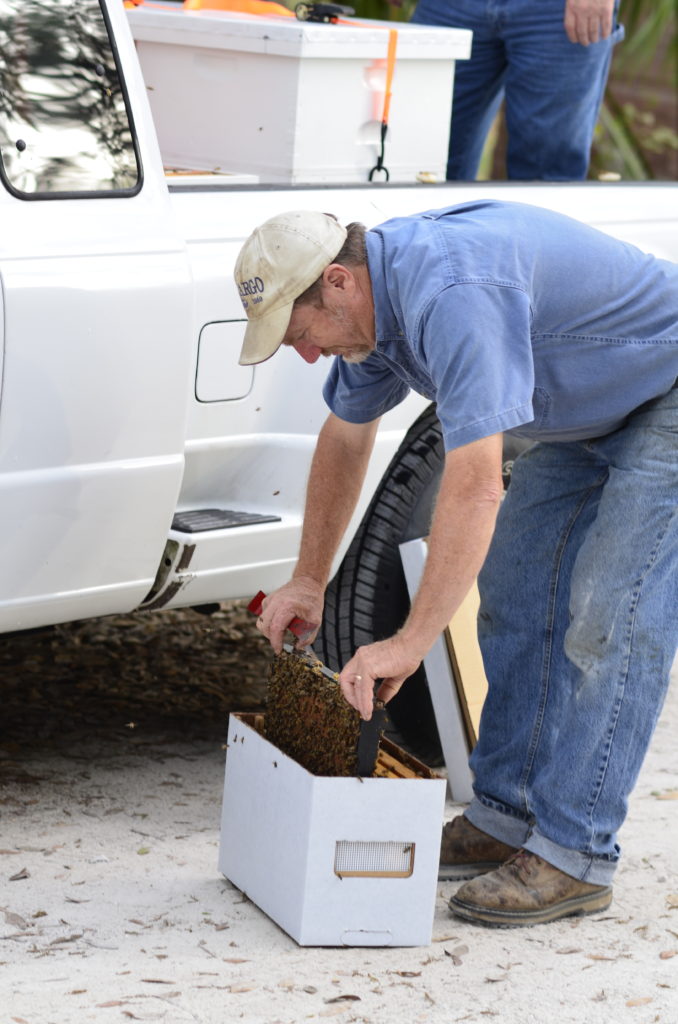
Do well sell package bees?
No, we have had plenty of personal experience with package bees, however, and most of it isn’t that good. In our experience, package bees are often ‘blown’ from hives which have just finished a honey flow and have had the honey extracted. The field bees are then allowed to go back up into the honey super which is ‘shaken’ (or blown with a bee blower) into a mesh cage with a caged queen of sometimes dubious background. The package is then loaded into a truck for shipping, which may take a day, or several depending on where the bees are in relation to the package customer (sometimes clear across the country!). This is not the case with all package producers. Some do an outstanding job of providing young healthy bees shaken from the brood nest. But be warned: the person you are buying you packages from is rarely the one who is producing them.
The result is that the customer usually receives worker bees who are on their last leg in age and are less likely to accept any queen even if it is the queen that they’ve been riding around in a cage with for the past few days. Even if the queen begins to lay immediately upon arrival, the worker bees that were in the package probably only have about fourteen days of life left. By the time the first new bees hatch, there are only a handful of ‘old’ bees left to care for the young bees who are needed to gather nectar, pollen, and care for the younger larva which need their attention. It’s not the best way to get a strong hive quickly or to make a honey crop. Swarms do proliferate in a method similar to this, but the bees that swarm are the family of the queen and there are varieties of ages of bees. Remember, bees do not do the same job their entire lives (except in The Bee Movie), rather they do the job that the hive needs them to do at different ages of life. Usually beginning with the role of nurse bee, field bee, and ending with guard bee or garbage duty. In the case of a swarm, the queen and hive are already family and have a plan, so to speak. When they find a home, they are ready to go.
Nucleus Hives: The benefits and risks.
With a nucleus hive, you are getting and established queen who already had brood, young and old, and bees who are also a variety of ages which are better suited to providing for the needs of a hive. You may also have emerging brood as soon as the day you receive the nuc, thus replacing old bees from day one. Additionally, you have drawn comb to place in your hive, as opposed to simply placing the bees into bare foundation (another job those first bees in the package would have to do!). One of the great benefits is that this nucleus hive will be ready to draw its additional frames and make honey or pollinate your garden immediately, depending on the weather.
There are some risks that new beekeepers need to be aware of the when purchasing nucleus hives. One is that the beekeeper who is selling the nuc must have a clean operation. Ask about foulbrood, mites, and hive beetles and the age of the equipment.
We do NOT have foulbrood in our operation and because we are raising queens, we are in the hives continually and keeping a vigilant eye open for it. We have not had it in our operation for decades.
The question of mites and hive beetles is trickier. Most all beekeepers will have some level of mites in their hives. We do treat for mites throughout the year, after the summer honey flow, and again in the early winter before raising queens. Nucleus hives that you receive from us should be able to go without any mite treatment until sometime in July (in July it would be wise to treat).
Hive beetles have not caused our strong hives any problem, even in the south. We do not see very many of them and do not use any specific treatment for them. There are natural methods of controlling them if you are in an area where they are a problem.
Age of the equipment is another legitimate question to ask about. For us, selling nucs is a great way to continue to keep new equipment coming into our operation. At this stage, having sold nucs for about 15 years our darkest frames are long gone and have been replaced with moderately dark combs. It is not uncommon for one of our customers to receive some dark frames along with some freshly drawn comb.
A package will need to be continually fed until the hive is strong enough to draw and fill its own comb, whereas a nucleus hive will generally need to have a quart of feed to begin with and then will need only to be monitored for feed over the next few weeks as it already has drawn comb and some honey stores available to it.
